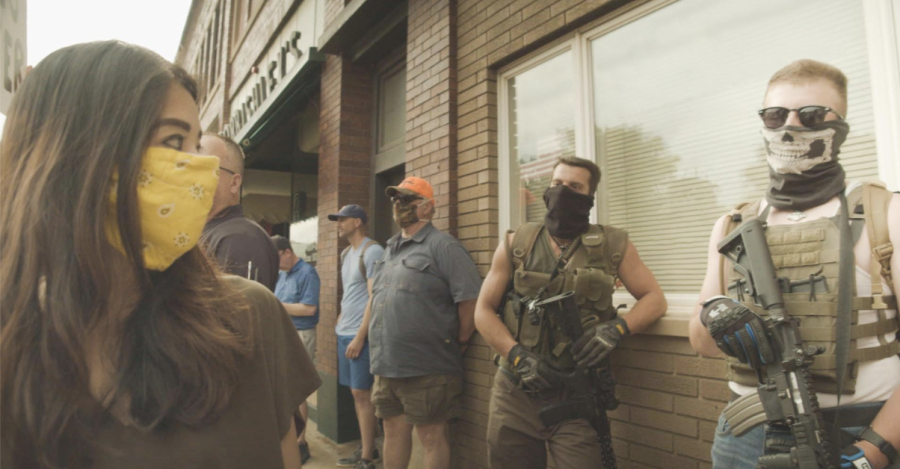‘Bad Axe’ offers intimate view of Asian-American family, their restaurant during COVID-19 pandemic
March 17, 2022
Director David Siev invites audiences into his living room for an immersive non-fiction family drama about life, loss, love and triumph during the COVID-19 pandemic in “Bad Axe.” This intimate documentary follows the Siev family through the pandemic month by month, documenting how their family restaurant endures lockdown restrictions, how they react to the resurgence of the BLM movement and how they cope with anti-AAPI attacks in their small Michigan town of Bad Axe.
Despite the initial fears and darkness of the early days of the pandemic, the film begins light and playful. David introduces his family members — his loving mother Rachel, strong-willed father Chun, and hardworking sisters Jaclyn and Raquel — and their life’s work: the growth and maintenance of Rachel’s, a well-loved community restaurant. Back under the same roof for the first time in years, the Sievs banter and bug David about why he is filming their every move.
Then, everything changes. The film’s first trial — complying with CDC recommendations and Michigan law while maintaining an income — transform their casual conversations. Bickering turns to screaming, and playful teasing turns to hard-hitting insults. Close enough to see Jaclyn’s tears cascade down her cheeks and Chun’s veins bulge, these moments feel incredibly raw and private. “Bad Axe” doesn’t merely offer a front-row seat to these arguments, but a spot on the couch beside the director himself, granting viewers full access to these strong and lovable personalities.
When restrictions lessen and business begins to improve, the Sievs face their second trial — the aftermath of George Floyd’s murder. After speaking out and joining in on the local BLM protests in their conservative, Trump-supporting small town, many longtime customers turn against the Siev family, threatening both their lives and economic security. “Bad Axe” takes viewers along with the Sievs as they march, cheer “Black Lives Matter” and argue with white supremacist counterprotestors. When these counterprotestors tighten their grips on their AR-15s or call out derogatory slurs at the Sievs, the audience can practically feel the adrenaline in David’s camera shakes and Jaclyn’s fierce shouts back.
The film becomes most intimate with personal interviews and archival footage of Chun and his mother, who immigrated to the United States as refugees during the Cambodian genocide. Delving into their escape and Chun’s enduring PTSD, David presents Chun as a complicated, multidimensional character who, though oftentimes comes off as loud and argumentative, wins over hearts and minds with his authenticity, determination and love for his children.
While most scenes ought to be watched with tissues at the ready, “Bad Axe” is also layered with unique, unbridled comedy — yet another effect of the director’s proximity to the subjects. Chun’s bluntness and unprovoked swearing make the darkest moments lighter, and the entire family’s pestering of David for getting too close or filming at inopportune times reminds the audience of the reality of the situation. David is just walking around his house with a camera, trying to capture whatever moments he can.
“Bad Axe” tells a tale of family unity. The Sievs’ loud, proud and unapologetic perseverance in the face of adversity proves that a family bound by love is a family able to withstand anything.
5 “David stop filming”s out of 5



